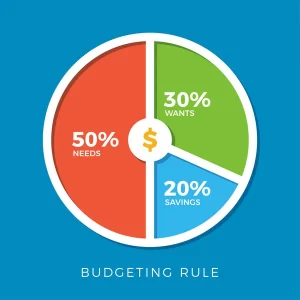In the face of economic uncertainty and unforeseen challenges, finding ways to save money becomes more than just a financial strategy; it becomes a source of empowerment and resilience. Whether it’s a global recession, personal setbacks, or unexpected expenses, tough times can often serve as catalysts for reevaluating our spending habits and adopting new, more frugal approaches. In this blog post, we’ll explore 30 practical and innovative ways to save money during difficult periods. From reimagining everyday expenses to embracing resourcefulness, these strategies are designed to help you take control of your finances, reduce stress, and emerge from tough times with a stronger financial foundation.
- Automate Savings: Set up automatic transfers to your savings account each month to ensure consistent savings.
- Shop with a List: Plan your grocery shopping with a list to avoid impulse purchases and stick to what you need.
- Use Cash Envelopes: Allocate cash to specific spending categories and use envelopes to stay within budget.
- Negotiate Bills: Call your service providers to negotiate lower rates on bills like cable, internet, and insurance.
- Unplug Electronics: Save on energy bills by unplugging electronics when they’re not in use.
- Buy Generic: Opt for store-brand and generic products to save money on everyday essentials.
- Meal Prep: Prepare meals in batches to save time and money on eating out.
- Brown-Bag Lunch: Bring your own lunch to work or school instead of buying meals.
- DIY Cleaning Products: Make your own cleaning products using inexpensive ingredients like vinegar and baking soda.
- Carpool or Bike: Share rides or bike to work to save on transportation costs.
- Cancel Unused Memberships: Review your subscriptions and cancel those you don’t use regularly.
- Buy in Bulk: Purchase non-perishable items in bulk to get lower unit prices.
- Use Coupons and Cash Back: Utilize coupons and cash-back apps when shopping online or in-store.
- Thrift Stores: Shop at thrift stores for clothing, furniture, and household items.
- Host Potluck Dinners: Have friends over and ask everyone to bring a dish, reducing the cost of entertaining.
- DIY Gifts: Create personalized gifts for special occasions instead of buying expensive presents.
- Comparison Shop: Compare prices before making big purchases to ensure you’re getting the best deal.
- Energy-Efficient Appliances: Invest in energy-efficient appliances to save on long-term utility costs.
- Cut Cable: Consider switching to streaming services to save on cable bills.
- Free Entertainment: Seek out free local events, concerts, and festivals for entertainment.
- Sell Unwanted Items: Declutter and make money by selling items you no longer need.
- Lower Thermostat: Lower your thermostat in winter and use fans instead of air conditioning in summer to save on utilities.
- Delay Gratification: Implement a 24-hour waiting period before making non-essential purchases.
- Reuse Containers: Repurpose food containers for storage instead of buying plastic containers.
- Homemade Coffee: Brew your own coffee at home instead of buying expensive coffee shop drinks.
- Refinance Loans: Explore refinancing options for loans to potentially secure lower interest rates.
- Grow Your Own Produce: Start a small garden to grow fruits and vegetables at home.
- Cut Out Vices: Reduce spending on vices like smoking, alcohol, or excessive dining out.
- Use Public Transportation: Use public transportation instead of driving to save on gas and parking.
- Negotiate Medical Bills: Negotiate medical bills and inquire about discounts or payment plans.
Remember, saving money is a gradual process, and not every hack will work for everyone. Tailor these tips to your lifestyle and financial goals to create a strategy that works best for you. Over time, these habits can help you build a stronger financial foundation.





